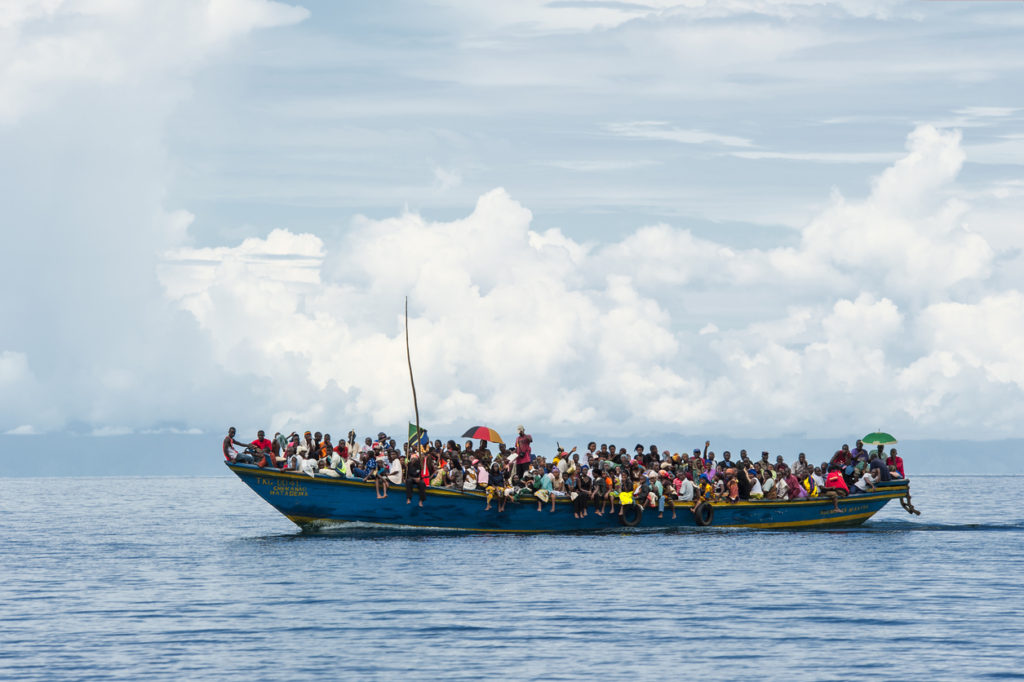Marc Simms is an occasional blogger for Proelium Law LLP. Marc holds a MLitt in Terrorism Studies and a Masters in International Relations, both from St Andrews. His particular interests are in emerging international security issues, unconventional warfare and terrorism.
Germany has agreed a deal last August with the Egyptian government designed to prevent the flow of migrants from the country reaching the EU.
Under the terms of the agreement, Egypt will be receiving German financial aid for training programs and increased funding for Egyptians to study in Germany. It would also involve the improvement of existing Egyptian refugee camps and closer coordination in cracking down on people smuggling groups within the country.
The Egyptian route
Egypt as a source of undocumented migration has been noted since 2014, though it has been overshadowed by other areas and issues, such as the large numbers of refugees caused by the Syria conflict and by fighting in Libya. Both of these theatres have led to large scale movements of people through Turkey and over the Mediterranean into Europe.
Two factors appear to be driving the issue in the case of Egypt: that of refugees escaping from Eritrea; and of Egyptians trying to escape the poverty and worsening economic conditions of their own country.
Eritrea is widely considered one of the most repressive regimes in the world, a rigidly nationalist one-party state where the media is state-owned, religious organizations are tightly controlled and citizens are required to undertaken lengthy, indefinite periods of military conscription. Eritrea also has ongoing border conflicts with both Ethiopia and Dijbouti, the latter of which has recently threatened to flare up again due to the withdrawal of Qatari peacekeepers from Dijbouti following the ongoing diplomatic crisis between the Gulf States.
Due to a large number of Eritreans being Christians, they often feel uncomfortable in Egypt, where ISIS has carried out repeated attacks on the Coptic Christian minority and are often the subject of lurid conspiracy theories by groups like the Muslim Brotherhood. As such, many fleeing to Egypt do not wait to be resettled by the UNCHR to Europe or America – a process that can take years – but instead risk the people smuggling groups to escape to Europe.
Human rights concerns
In both Turkey and Libya, where similar schemes exist, there have been considerable human rights concerns associated with such programs.
In the case of Turkey, refugees fleeing the Syria conflict have been subject to arbitrary detention and even deportation back to Syria, in violation of international law which bans countries from returning refugees to conflict zones. Refugees were also tortured and forced to sign documents against their will.
With Libya, Human Rights Watch has pointed to the Libyan Navy’s lack of capacity to safely carry out rescue operations, and the UNCHR has found inhuman and shocking conditions at refugee centres in the country.
Egypt has recently been criticised by the US for its human rights record, cutting the aid it gives to the country as a result. In recent months, Egyptian security forces have undertaken a series of extrajudicial killings, which raise obvious concerns as to whether Egypt will respect international law where refugees are concerned, or instead focus on getting results favourable to the deal with Germany regardless of the risk to migrants.
“Germany and Egypt are both very much interested in preventing migrants from setting off illegally on the hazardous voyage across the Mediterranean to Europe, now and in future,” said government spokesperson Steffen Seibert on Monday 28 August at the government press conference in Berlin.
Need advice?
If you’d like further information, or to discuss working with us, please get in touch






